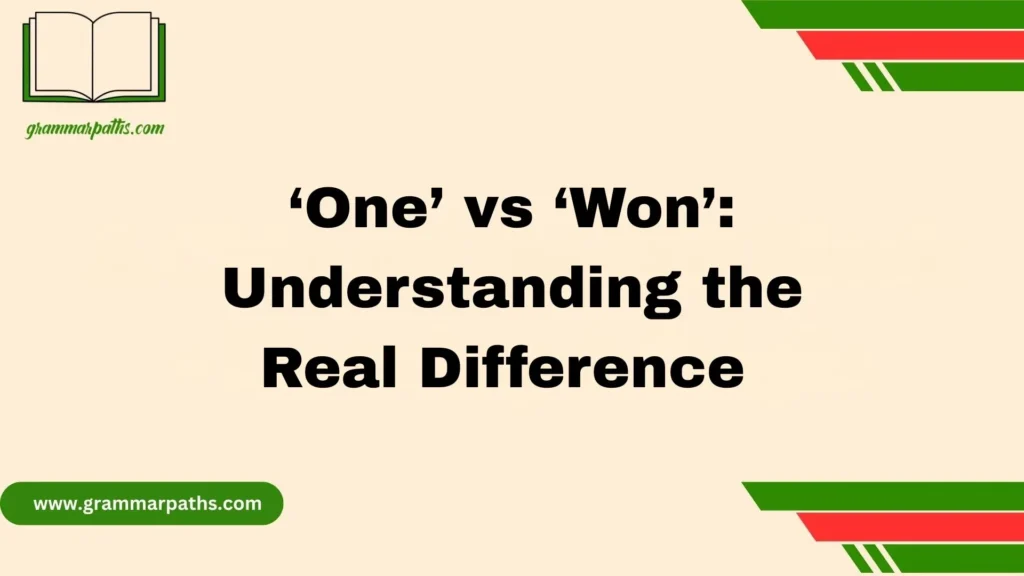I first heard the word hoosegow from my grandfather, who told me about an old brawl near broken-down saloons in a dusty Western town. The word carried a gritty, colorful, and sometimes quirky charm. Later, I learned it was slang in American cultural history, meaning jail. Its origins go back to Spanish, from juzgado, a court term, before finding its identity in English. Even though it belongs to the past, the word feels very much alive, surfacing in tales of dusty jailhouses, Wild West legends, and hard-luck towns. To me, it always connected to a sense of frontier justice, where words carried weight like an old badge.
You can still notice it today—in films, reenactments, or evocative scenes that echo language from earlier times. I’ve even come across it in documentaries, books, or funny memes, where nostalgia meets pop culture fame. As someone who pays attention to dialects, regional vernacular, and the way eras are shaped by words, I find “hoosegow” fascinating. A few syllables can serve as a token of an untamed time, carrying vivid, flavorful expressions stitched into the tapestry of storytelling.
What Does “Hoosegow” Mean?
At its core, hoosegow is an informal slang term for jail or prison. If someone says, “He ended up in the hoosegow,” they mean the person landed in jail.
Unlike the formal words jail or prison, hoosegow carries a humorous or exaggerated tone. People often use it to lighten a story or make a situation sound more colorful. For example:
- “After the bar fight, they tossed him in the hoosegow for the night.”
- “She joked that if her driving got any worse, she might end up in the hoosegow.”
The choice of this word adds personality and flair. Instead of sounding clinical, it paints a picture with a bit of Wild West charm.
The Origin of the Word “Hoosegow”
The word hoosegow first appeared in American English around the early 1900s, especially in the Southwestern United States. Its rise came at a time when slang flourished in frontier towns, saloons, and rural communities.
According to the Oxford English Dictionary, the first printed usage dates back to 1911 in references to Western culture. Newspapers, novels, and traveling performers helped spread it across the country.
The word stuck because it was memorable. Its odd spelling and sound made it feel distinct from other slang words like clink or pokey. It also carried a bit of frontier authenticity, something tied to cowboy culture and small-town sheriffs.
The Spanish Roots of “Hoosegow”
The real story begins with Spanish. The term hoosegow comes from the Spanish word “juzgado”, which means courtroom or tribunal.
- Juzgado (Spanish) → pronounced roughly hoos-gah-doh
- Over time, English speakers in the American Southwest misheard and reshaped it into hoosegow.
What’s interesting is that while juzgado refers to a court, in English the meaning shifted to the place where you end up after court: jail. This kind of semantic drift is common when languages borrow words.
Spanish influence on American English is especially strong in the Southwest—states like Texas, Arizona, and California—where bilingual communities shaped speech patterns. Words like rodeo, canyon, lasso, and patio all came from Spanish. Hoosegow joined that list but carried a unique twist as slang.
Cultural Influences in America
The word didn’t just survive because of Spanish roots. It grew because of its cultural setting.
- Cowboys and the Old West: Towns with saloons and sheriffs became breeding grounds for slang. Hoosegow fit perfectly with that environment.
- Immigrant Communities: Language mixing between Spanish and English speakers made words like juzgado part of local slang.
- Traveling Shows and Literature: Wild West shows, dime novels, and pulp fiction spread Western slang across the nation.
By the mid-20th century, the word was no longer just regional—it had become part of American cultural memory.
Hoosegow in Popular Culture
Western Movies & TV Shows
Classic Westerns helped popularize the word. In films where sheriffs lock up outlaws, hoosegow became a go-to term. Examples include:
- “The Westerner” (1940): Dialogue uses the word to add authenticity.
- John Wayne films: Frequently employed slang terms like hoosegow to capture the Western spirit.
Literature & Pulp Fiction
Writers of the early 20th century, including those in pulp magazines, leaned on hoosegow to make dialogue sound rugged and real. Characters often joked about ending up in the hoosegow.
Music & Comedy
Country musicians and comedians kept the word alive. Lyrics in old honky-tonk songs sometimes referenced the hoosegow as a funny way of saying jail. Stand-up routines often use it for comic exaggeration.
Modern Media
While rarer today, the word pops up in cartoons (Looney Tunes used it), sitcoms, and satire. Writers use it when they want to add an old-fashioned, Western-style flavor.
Usage in Modern Language
So, do people still say hoosegow today? The short answer: yes, but less often.
It tends to show up in these situations:
- Humor: To make a story funny.
- Nostalgia: Older speakers, especially in rural areas, may still use it.
- Creative Writing: Authors use it to give characters a Western or quirky personality.
- Journalism: Occasionally, reporters use it in headlines for a colorful twist.
Example: “Local prankster lands in the hoosegow after courthouse stunt.”
That said, it’s not a word you’ll hear in serious contexts. A judge or lawyer would never say “hoosegow” in a courtroom. It’s firmly in the slang/humor category.
Synonyms and Related Slang
English has no shortage of slang for “jail.” Here are some of the most common, with their nuance:
| Slang Term | Meaning | Tone/Usage |
| Clink | Jail | Casual, old-fashioned |
| Slammer | Jail | Harsh, often in media |
| Pokey | Jail | Lighthearted, Southern/Midwestern |
| Lockup | Holding cell | Neutral, police use |
| Pen/Big House | Prison | Serious, long-term |
| Hoosegow | Jail | Western, humorous |
Hoosegow stands out because it’s regional and tied to Western folklore, unlike more generic terms such as slammer or clink.
Real-World Usage Examples
Here are some ways people might use hoosegow today:
- “If he keeps ignoring those speeding tickets, he’s headed straight to the hoosegow.”
- “Back in the day, they’d toss a cowboy in the hoosegow for starting a saloon brawl.”
- “The mayor joked during his speech that if taxes went any higher, folks would throw him in the hoosegow.”
Case Study: Journalism
In 2015, a Texas newspaper ran the headline: “Rowdy rodeo fans land in the hoosegow.” The word was used to give a Western flair, fitting the rodeo theme.
Case Study: Entertainment
In The Simpsons, Bart once used the word to describe what would happen if Homer got caught for a scheme. This kept the slang alive for younger viewers.
Interesting Facts About “Hoosegow”
- Crossword Favorite: Because of its unusual spelling, hoosegow often appears in word puzzles.
- Spelling Confusion: Some people spell it “hoosgow,” dropping the “e.” Both versions appear in print.
- Rare Legal Appearance: A 1930s newspaper once jokingly referred to a courthouse as a “hoosegow,” showing how slang sometimes creeps into semi-formal writing.
- Trivia: The word is listed in major dictionaries like Merriam-Webster and Collins as “chiefly US slang.”
Why “Hoosegow” Still Matters
Even though it isn’t widely used anymore, hoosegow holds cultural weight. Here’s why:
- Nostalgia: It carries a Western, old-timey feel that connects to America’s past.
- Cultural Preservation: Words like this keep history alive in language.
- Charm: Using it adds humor and personality to speech.
Think of it as verbal seasoning. Just as a pinch of spice makes a dish memorable, words like hoosegow add flavor to language.
Conclusion
The word hoosegow is more than just old-fashioned slang for a jail—it’s a piece of American cultural history. With origins in Spanish through juzgado (meaning court), it grew into a unique identity in English. From Wild West tales told by a grandfather about dusty jailhouses and hard-luck towns, to modern films, memes, and pop culture, it has stayed alive. Words like this carry a gritty, colorful, and quirky charm, serving as a token of frontier justice, regional dialects, and vernacular expressions that keep storytelling vivid and timeless.
FAQs
Q1: What does “hoosegow” mean?
It’s old American slang for a jail, rooted in Spanish (juzgado).
Q2: Why is it connected to the Wild West?
Because it often appeared in Western tales, saloons, and legends, tied to frontier justice and evocative scenes of that era.
Q3: Is the word still used today?
Yes, you can hear it in films, reenactments, documentaries, books, and even memes, showing its ongoing role in pop culture and storytelling.
Q4: What makes the word special?
Its origins, flavorful sound, and nostalgia give it a unique charm, making it a vivid part of the tapestry of language.
Q5: Does “hoosegow” belong to a specific region?
It is strongly linked with regional dialects, especially the Western eras and vernacular that shaped American history.

Emma Brooke is a passionate language expert and contributor at GrammarPaths.com, where she helps learners navigate the complexities of English grammar, idioms, and effective writing. With a strong academic background and years of teaching experience, Emma excels at turning tricky grammar rules into simple, practical lessons that readers can easily grasp.












